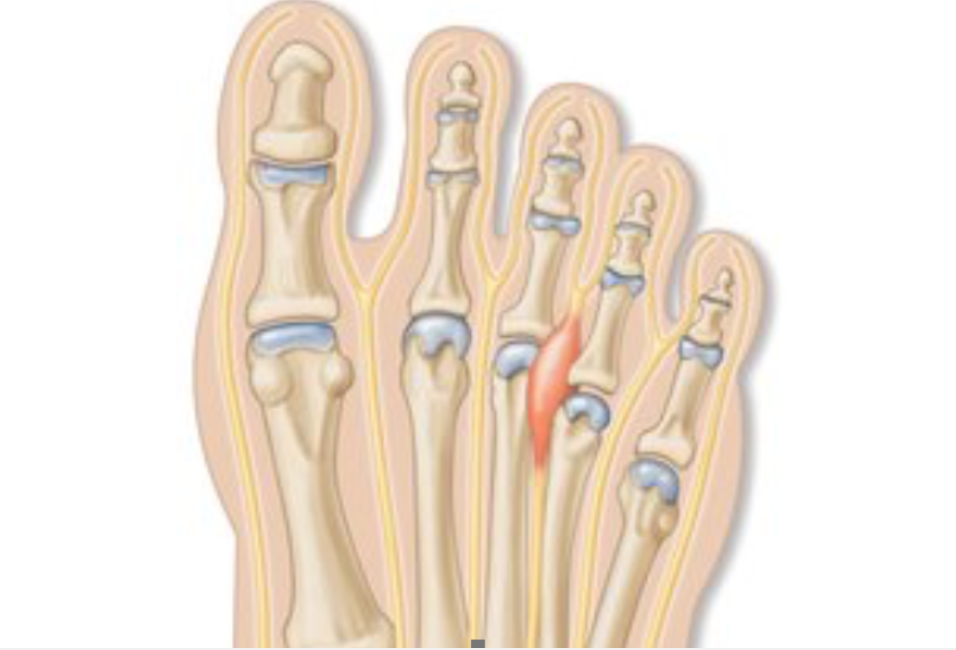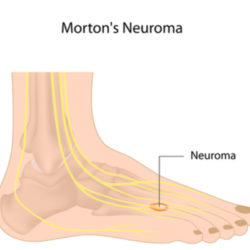What is Morton's Neuroma and how can it be treated?
Book a free Intro call today to discuss your treatment options for Morton's Neuroma
What is Morton's Neuroma?

Symptoms of Morton's Neuroma

Kent’s Holistic Foot & Ankle specialists
The Sajid Shariff clinic is a private orthopaedic clinic based in SE London and Kent that specialises in surgical and non-surgical treatment of foot and ankle conditions including Morton's Neuroma, plantar fasciitis, ankle sprains, bunions and achilles tendonitis.
Keep an eye on the shape of your feet; if you see changes see a doctor to find out if there are any recommendations to prevent hallux valgus from forming

Use a variety of exercises to stretch your feet and calves

Try to avoid shoes that have a heel or pointed toe
Common causes of Morton's Neuroma
Irritation of the digital nerve: Over a prolonged period of time, repeated injury causes the nerve or bursa to become inflamed and painful.
Inappropriate footwear: Tight fitting shoes or the constant wearing of high heels combined with thin hard soles shifts the body weight onto the ball of the foot and increases the pressure on the nerve. It is therefore more common in women between the ages of 25 to 50 years.
Diagnosis of Morton's Neuroma
The diagnosis of Morton’s Neuroma may be difficult and much depends on the history and description of the problem.
Physical examination
The foot is examined and a test called Mulder’s Test which involves squeezing the foot is often performed. A palpable ‘click’ followed by pain shooting out into the toes and back into the foot (known as the Mulder’s Click) may indicate the presence of a Morton’s Neuroma. The doctor will also assess any numbness you may have in your toes.
Diagnostic imaging
Radiographs (x rays) may be taken to investigate underlying problems. An ultrasound scan may be performed. This involves using sound to generate an image of the soft tissue between the metatarsals. If the diagnosis proves difficult, an MRI (magnetic resonance imaging scan) may be carried out.
Treatments we offer for Morton's Neuroma
Non Surgical Treatments
Appropriate shoes and orthotics
This is directed at modifying footwear and insoles and extra wide soft shoes with cushioning to the soles often help to offload the forefoot, thus improving symptoms.
Injection
A steroid or cortisone in conjunction with a local anaesthetic (lignocaine) injected into the area around the nerve relieves pain in about 40% of cases. Ultrasound guided injections can also be useful in localizing the site of the swelling.
Surgical Treatments
If conservative methods are unsuccessful surgery may be necessary. This has about an 80% success rate. See Surgical excision of Morton’s Neuroma

